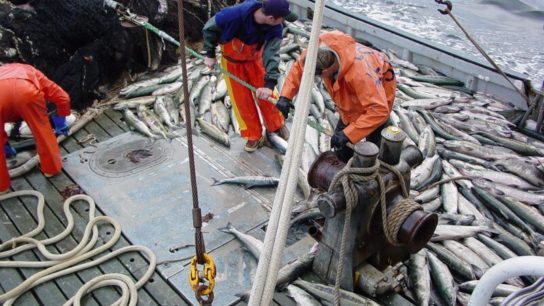Operations to remove oil barrels from a decaying supertanker off the costs of Yemen began in June and cost over $140 million.
—
The United Nations announced on Friday the successful transfer of oil aboard a decaying tanker off the coasts of Yemen, averting a catastrophic oil spill in the Red Sea that would have had unimaginable social, environmental, and economic consequences on a global level.
Japanese-made supertanker FSO Safer, originally used to store and transport oil, was sold to the Yemeni government during the 1980s to store for export up to 3 million barrels from oilfields in eastern Yemen’s Marib province and has been stationary off the coast of Yemen since 2015, following the escalation of the country’s civil war. Left to deteriorate for years, experts raised the alarm several times, warning the FSO Safer had become an ecological time bomb that could have exploded or disintegrated at any moment.
Operations to transfer the more than 1 million oil barrels stored onboard began in July after years of planning. The full cargo of oil was pumped from the 360-metres (1,181-feet) long FSO safer onto a replacement vessel. Without immediate action, the tanker would have likely exploded or broken apart, spilling as much as four times the volume released in the infamous 1989 Exxon Valdez oil spill in Alaska.
UN Secretary-General António Guterres welcomed the news of the successful conclusion of the operations, acknowledging the Yemeni authorities’ critical support and thanking the many countries, private companies, and philanthropic organisations who helped fund the project, which cost over US$140 million. In a statement, however, UN deputy spokesperson Farhan Haq said that some $20 million were still needed to “remove any remaining environmental threat to the Red Sea.”
A day of gratitude and relief as threat of Red Sea oil spill from #FSOSafer is averted. The @UN-led, @UNDP implemented plan to #StopRedSeaSpill has succeeded. 2 years of meticulous & painstaking negotiations and logistics by our dedicated teams delivered pic.twitter.com/YNIsOGoBJi
— Achim Steiner (@ASteiner) August 11, 2023
“Today is a great milestone,” said UN Resident and Humanitarian Coordinator for Yemen David Gressly, who led the UN’s efforts on the Safer since September 2021. “A remarkable global coalition came together under the UN umbrella to prevent the worst-case scenario of a catastrophic oil spill in the Red Sea. We need to finish the work the UN started.”
You might also like: How Do Oil Spills Affect the Environment?


















